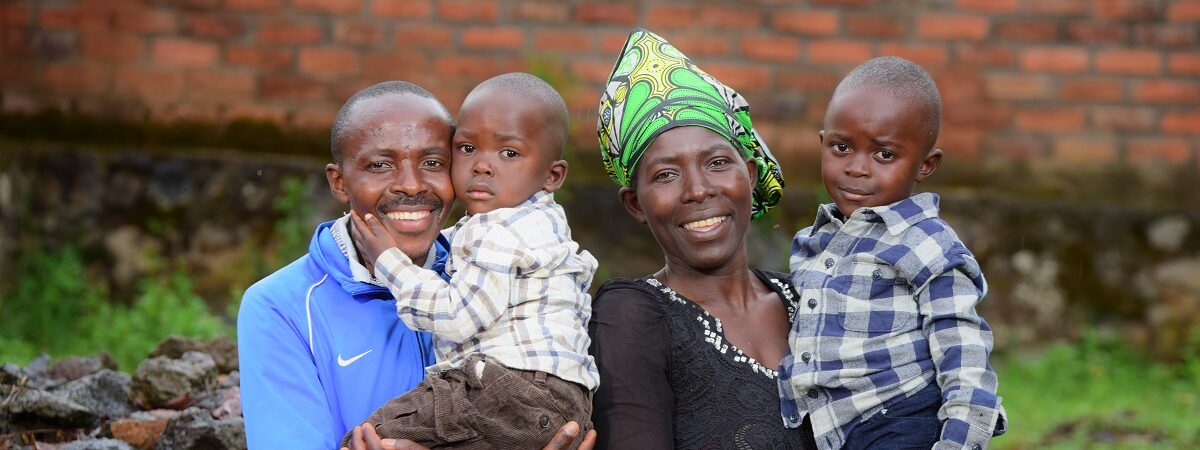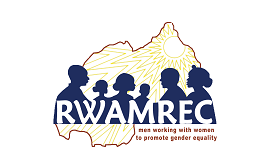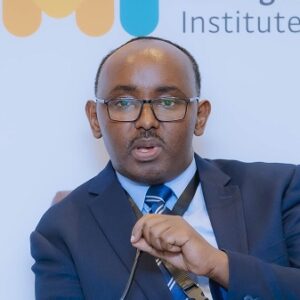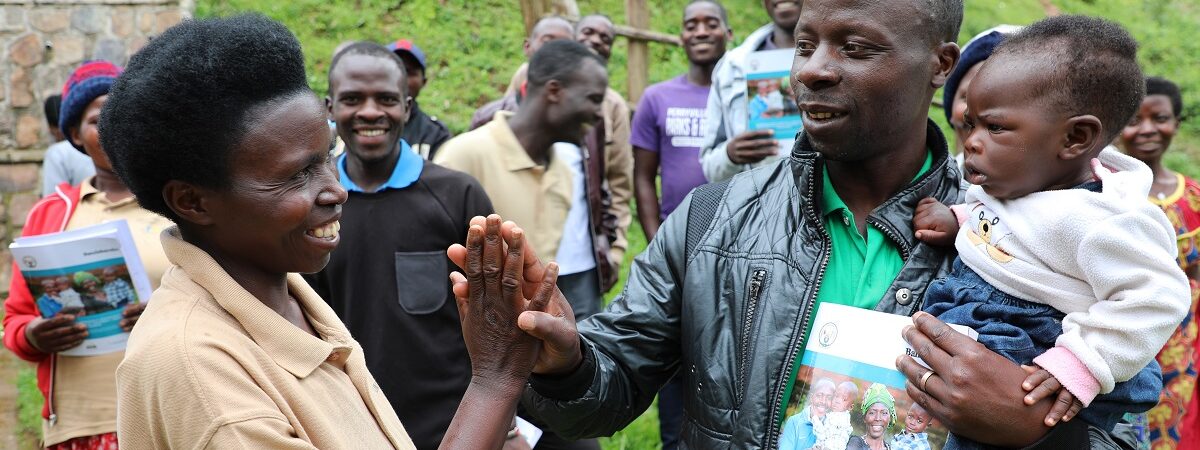
Rwanda Men’s Resource Center
Model & Strategy
Rwanda Men’s Resource Center (RWAMREC) works to improve gender equality and family health outcomes by using an evidence-based approach that engages men in their communities to reduce gender-based violence, improve child and maternal health, and promote economic mobility. Since 2008, RWAMREC’s evidence-driven programs and advocacy have reached nearly 700,000 people.
The Problem
Gender disparities and Gender-Based Violence (GBV) continue to be critical issues affecting millions of women and girls. The prevalence of GBV, including intimate partner violence and sexual violence, is alarmingly high, with approximately one in three women worldwide experiencing such violence in their lifetime.
In Rwanda, GBV is a pressing issue affecting women and girls. Despite government efforts, 37% of women aged 15-49 report experiencing at least one form of violence—physical, economic, sexual, or psychological. GBV is driven by harmful social and gender norms that perpetuate gender inequalities. These deeply ingrained norms, cultural beliefs, and behaviors create a vicious cycle where children who grow up in homes where violence is normalized are more likely to experience or perpetrate GBV as adults. Negative beliefs about masculinity in Rwandan society further fuel these issues. Unfortunately, men are often not seen as part of the solution to preventing and addressing GBV. GBV and its root causes significantly impact women, hindering their access to education, employment, and financial opportunities and threatening their participation in decision-making and politics.
The Solution
RWAMREC improves gender equality and family health outcomes by leveraging male and partner engagement to reduce GBV, improve maternal and child health, enhance caregiving, and promote economic mobility. RWAMREC’s flagship program, Bandebereho — meaning role model in Kinyarwanda — works with parents of young children under five to promote men’s engagement in reproductive, maternal, and newborn health, caregiving, and healthier couple relations. By leveraging fatherhood as an entry point, the program encourages men’s involvement as nurturing, non-violent partners and fathers. Led initially by community peer volunteers and later by government community health workers (CHWs) since 2019, the program focuses on men’s engagement in pregnancy, antenatal care, family planning, parenting, caregiving, conflict resolution, and decision-making. The sessions provide a safe space for participants to question and reflect on gender norms, practice equitable behaviors, and internalize these new attitudes. Bandebereho has undergone multi-year RCTs with a six-year follow-up with positive results.
Over the next decade, RWAMREC aims to expand Bandebereho nationwide within the Rwandan health system, leveraging government CHWs to engage approximately 3.5 million parents responsible for 2.4 million children across the country. The structured, evidence-informed approach for the program has been documented to facilitate replication in other countries through partnerships with Equimundo and other local implementation partners or by RWAMREC directly in certain circumstances.
In addition to Bandebereho, RWAMREC runs several other programs and interventions that similarly engage men to address gender inequalities and GBV. These programs run in parallel to and complement the Bandebereho flagship program; they allow the organization to test different modes of interventions, such as using digital communication for behavioral change, and support their efforts to build relationships with the local government across the different districts.



Fidele is a dedicated advocate for women’s rights and holds a master’s degree in gender and development, complemented by a postgraduate degree in peacebuilding. As RWAMREC’s founder and executive director, he brings a wealth of experience to his role, serving on multiple boards such as Hope Assistance Foundation Rwanda, Benimpuwe, CLADHO, and Servas Rwanda. Fidele led the petition against Sexual and Gender-Based Violence in Kenya in 2008 and won the 2011 GBV Prevention Network 16 Days of Activism competition.

Impact
Bandebereho’s 460 education groups have directly reached 5,054 couples and 7,035 children since inception.
Bandebereho is globally recognized as a best practice in preventing violence against women and children (WHO).

